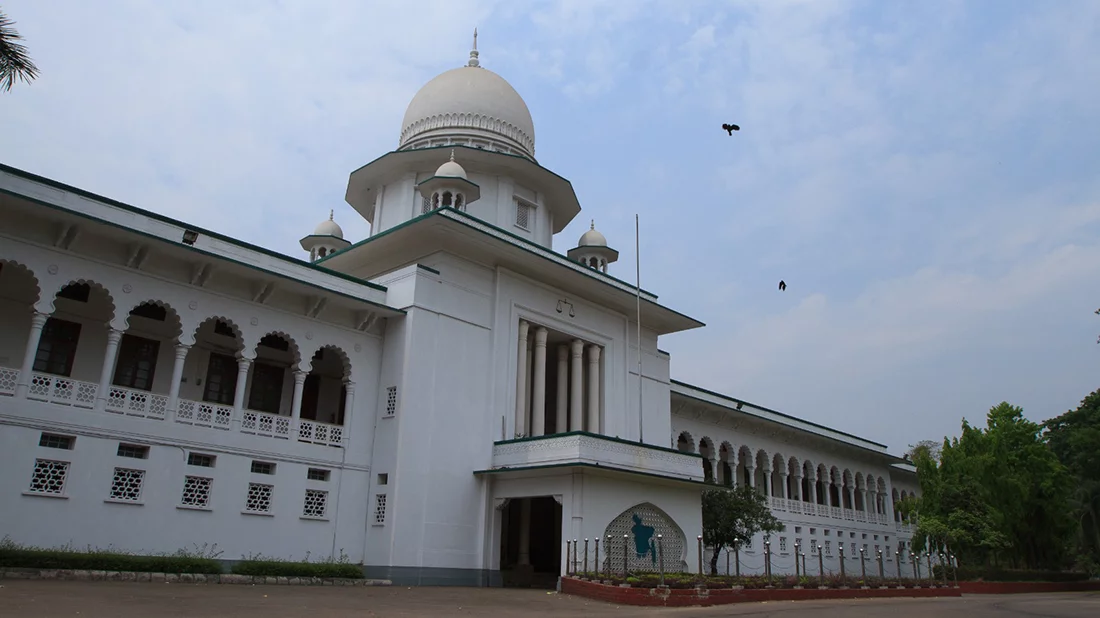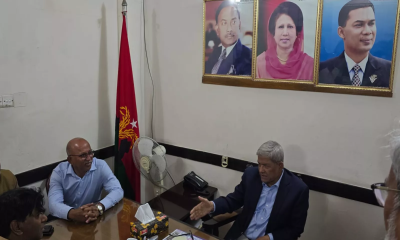After the fall of the Awami League government last year, following a major student and public uprising, the formation of an interim government under Professor Muhammad Yunus has now been upheld by the High Court.
The court declared that this government was not only supported by legal documents but also backed by the will of the people.
The President, acting under Article 106 of the Constitution, sought the opinion of the Supreme Court on forming an interim government to run the country.
After receiving the Supreme Court`s advisory opinion, an interim government was set up, with members of the Advisory Council taking their oaths.
A lawyer from the Supreme Court, Mohammad Mohsin Rashid, had filed a writ petition challenging this process, arguing that the formation and oath-taking were not legally supported.
He questioned the constitutional basis of the entire process.
However, on January 13, a High Court bench led by Justice Fatema Nazib and Justice Shikdar Mahmudur Razi dismissed the writ, and the full verdict has recently been published.
In their detailed judgment, the court clarified that the interim government, led by Professor Yunus, was backed by legal documents and public approval.
The court dismissed the petitioner`s claims that the government lacked legal support.
It stated that the President had acted within his constitutional rights when he sought the Supreme Court`s opinion, which was followed by the formation of the interim government.
“The 2024 public uprising in July-August is a significant part of our history, and we hope it will be preserved with care for years to come,” the court mentioned in its full ruling.
The court dismissed the petition as being based on “flawed understanding, malice, and intended to harass.”
According to Article 106 of the Constitution, the President can refer legal questions to the Supreme Court if he believes they are important and of public interest.
The Supreme Court then provides its opinion after hearing the matter.
The writ petitioner, Mohammad Mohsin Rashid, argued that the reference to the Supreme Court could not be made on a matter that is not explicitly outlined in the Constitution, such as the formation of an interim government.
He also claimed that the rules of the Supreme Court were not followed, particularly that no notice was given to the Attorney General before the hearing.
In contrast, the state’s lawyers argued that proper notice had been given to the Attorney General, who was present during the hearing.
Rashid himself represented his case in court, with the assistance of lawyer S.M. Monirul Alam.
The state was represented by Additional Attorney General Anik R Haque and Deputy Attorney General Akhtar Hossain Md. Abdul Wahab.
The background to this case dates back to August 5 of last year, when the Sheikh Hasina government was overthrown by a massive public and student-led uprising.
Just days later, on August 6, the President dissolved Parliament, and by August 8, an interim government was formed under the leadership of Professor Yunus.
The members of the Advisory Council were sworn in soon after.
Before the interim government was formed, President Md. Shahabuddin sought an advisory opinion from the Supreme Court under Article 106.
In response to this special reference, the Appellate Division, led by Chief Justice Obaidul Hassan and comprising seven judges, issued their opinion on August 8.
They affirmed that in times of constitutional crisis, the President had the power to appoint a Chief Adviser and other advisers to run the country as a temporary measure.
This ruling by the High Court solidifies the legitimacy of the interim government that has been running the country since the fall of the Awami League government.
It puts to rest any legal questions surrounding the formation of this government, affirming that both legal protocols and the will of the people were followed.














-20260304091720.webp)






-20260303080739.webp)










-20260225072312.webp)





-20260228064648.jpg)
